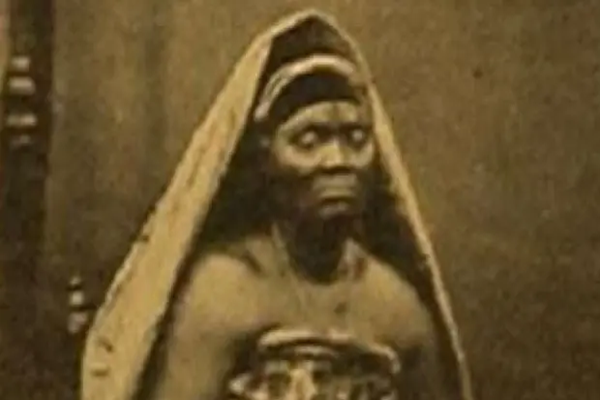A film titled: Efunroye: The Unicorn, which is based on the life of Efunroye Tinubu, popularly known as Madam Tinubu, has sparked controversy.
The movie, produced by Faithia Williams, came under heavy criticism for glorifying Efunroye Tinubu’s legacy of slave trade.
Williams on Instagram said: “Power. Trade. Legacy… The untold story of a warrior queen is about to unfold. She built an empire. She defied kings. She changed history. When freedom had a price, she paid it in gold. The merchant queen who rewrote the rules. Now, it’s time for her to rule your screens.”
Although Williams has not said much about the film, the announcement has generated heated controversies. There is no release date yet. The film is a biopic of Madam Tinubu’s life. Williams is the producer and will also play the role of Madam Tinubu.
Here are few things to know about her:
Tinubu was born in the Ojokodo forest area of Egbaland. Her father’s name was Olumosa. She was allegedly of Owu ancestry, either through her maternal or paternal side. Madam Tinubu was reportedly married multiple times.
Born in Abeokuta in the early 1800s, she married and had two sons but her husband passed away soon after.
In 1833, she remarried Adele, an exiled Oba of Lagos and began to amass significant political and economic influence.
They moved to Badagry, where Tinubu built a thriving business empire by trading slaves for salt and tobacco with European merchants.
She expanded her trading network to include palm oil and slaves. During the Yoruba Wars of the 1840s and 1850s, Tinubu increased her wealth by monopolising palm oil and slave trading as well as selling weapons she obtained from European contacts.
Madam Tinubu played a key role in the war against Dahomey and was honoured with the title of Iyalode of Egbaland, the highest chieftaincy title for women.
Her stance on slave trading is explored in her biography, Madame Tinubu: Merchant and Kingmaker, written by Nigerian historian Oladipo Yemitan.
She also actively opposed colonial policies in Lagos and was deeply involved in king-making activities in Abeokuta, backing Prince Oyekan over Ademola for the title of Alake of Egbaland in 1879.
She died in 1887, and today, Tinubu Square on Lagos Island bears her name.

